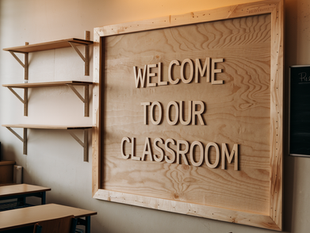CALL US: +852 3902 3123
Whatsapp: 70758708

Plywood boards are essential in many industries, from crafting furniture to constructing buildings and pursuing hobbies. With so many varieties and qualities available, understanding the cost differences among them is crucial. This post will provide a detailed look at different types of plywood, their costs, and the key factors that influence these variations.
Understanding Plywood Basics
Plywood is formed by gluing thin sheets of wood veneer together, with the grain direction alternating for extra strength and stability. It is classified into several types: softwood, hardwood, marine, and specialty plywood.
The price of plywood can vary widely based on type, source, thickness, and manufacturing techniques. In this article, we will break down these variations to help you make informed decisions.
Cost of Softwood Plywood
Softwood plywood usually comes from trees like pine, fir, or spruce. Its lightweight nature makes it suitable for various projects, including home construction and furniture-making.
The average cost of softwood plywood ranges from $20 to $50 per sheet. For instance, a standard sheet of pine plywood may cost around $30, while higher-grade spruce can reach up to $50. This type tends to be popular for its affordability, appealing to budget-conscious builders. However, keep in mind that while it is economical, the durability of softwood plywood may not match that of hardwood, particularly in high-stress or load-bearing applications.
Cost of Hardwood Plywood
Hardwood plywood is derived from species like oak, maple, and birch. It is typically used in high-end projects like cabinetry and fine furniture due to its strength and visual appeal.
The price for hardwood plywood ranges from $30 to $100 per sheet. For example, a sheet of birch plywood may cost around $40, while higher-quality maple could reach $80. Exotic hardwoods like mahogany can see prices soar to $150 or more per sheet. The investment in hardwood often results in a beautiful finish and superior durability, making it worthwhile for premium applications.
Marine Plywood Costs
Marine plywood is crafted to resist moisture, making it ideal for humid environments and outdoor use. It undergoes special treatment for water resistance.
Prices for marine plywood typically start at $60, going up to $120 or more depending on the quality. A common choice for boat building, marine grade plywood delivers durability against water exposure, justifying the higher price tag. For instance, a quality piece of marine plywood suitable for boat decking may cost around $90.
Specialty Plywood Costs
Specialty plywood includes products tailored for specific applications, such as soundproofing and fire resistance. Costs for these unique items can vary significantly due to their specific processing requirements.
Prices can range from $50 to $200 per sheet. For example, soundproof plywood might cost around $150, while fire-resistant options can approach that figure as well. Investing in specialty plywood can enhance project outcomes by addressing needs that standard plywood does not fulfill.
Factors Influencing Plywood Pricing
Material Quality: Higher grade veneers, which lack knots and surface defects, tend to be pricier, offering better aesthetic and performance attributes.
Thickness: Thicker boards generally cost more but provide enhanced strength and durability, essential for demanding applications.
Processing and Treatment: Treatments like waterproofing or fire resistance raise costs due to the additional manufacturing steps involved.
Source and Availability: Locally sourced plywood may be cheaper than imported options due to lower transportation costs. Supply chain issues can also impact prices.
Market Demand: Prices can spike during construction booms or following natural disasters, reflecting increased demand.
Making the Right Choice
Choosing the best type of plywood for your project requires an understanding of cost variations and key factors that influence prices. From softwood to specialty plywood, each type has distinct characteristics and price points.
Consider factors like material quality, thickness, and necessary treatments to make a well-informed decision that suits your project and budget. Whether you are a DIY enthusiast or a seasoned contractor, having a grasp of plywood costs will enable you to approach your projects with confidence.
In the competitive arenas of woodworking and construction, knowing how to select the right materials can give you an edge. With the insights shared here, you are ready to embark on your next project informed and prepared.






